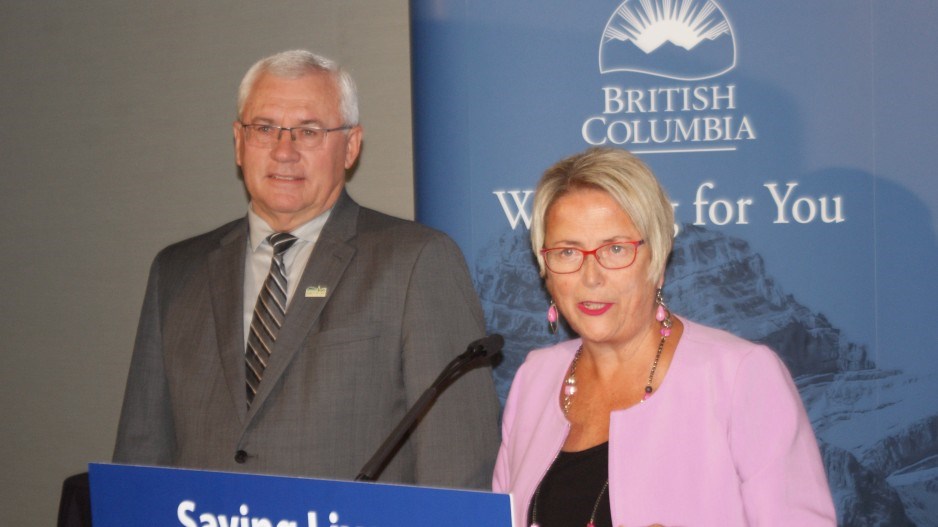Creating further overdose crisis support programs in local communities is the focus of $3.5 million announced by B.C.’s minister of mental health and addictions September 23.
Calling it “the federal poisoning crisis,” which claimed 1,500 British Columbians last year, Judy Darcy said it is communities that know best what is needed locally to help address the crisis on the ground.
Moreover, Darcy announced the creation of a further 16 community action teams in response to the overdose crisis. The increase brings the total of such teams to 35 throughout B.C.
“From Day 1, we recognized that it is people on the ground, on the front lines of the overdose crisis who know best what works in their communities, large and small,” Darcy said. “By investing in local solutions, we are coming together as a province to reduce harm, fight stigma and support people on their own pathway to healing and hope.”
Darcy said up to $50,000 in grant funding for community projects is available through the Community Wellness and Harm Reduction Grant program administered by the Community Action Initiative. It could be used for such projects as needle distribution, recovery programs, and projects that reduce stigma and help connect people to health-care services, she said.
Abbotsford Mayor Henry Braun said his community has many programs in place to help those affected by the crisis. The Fraser Valley city has created a community action team, an inter-agency care team and a community wellness hub.
He said the work assists those facing both addiction and homelessness issues.
Darcy said new teams will be established in Hope, the Tri-Cities, Mission, South Surrey/White Rock, Penticton, Grand Forks, Nelson, Castlegar, West Kelowna, Williams Lake, Oceanside, Comox Valley, Quesnel, Dawson Creek, Terrace, Sunshine Coast and the Sea to Sky Corridor including Squamish, Whistler and Pemberton.
@jhainswo




